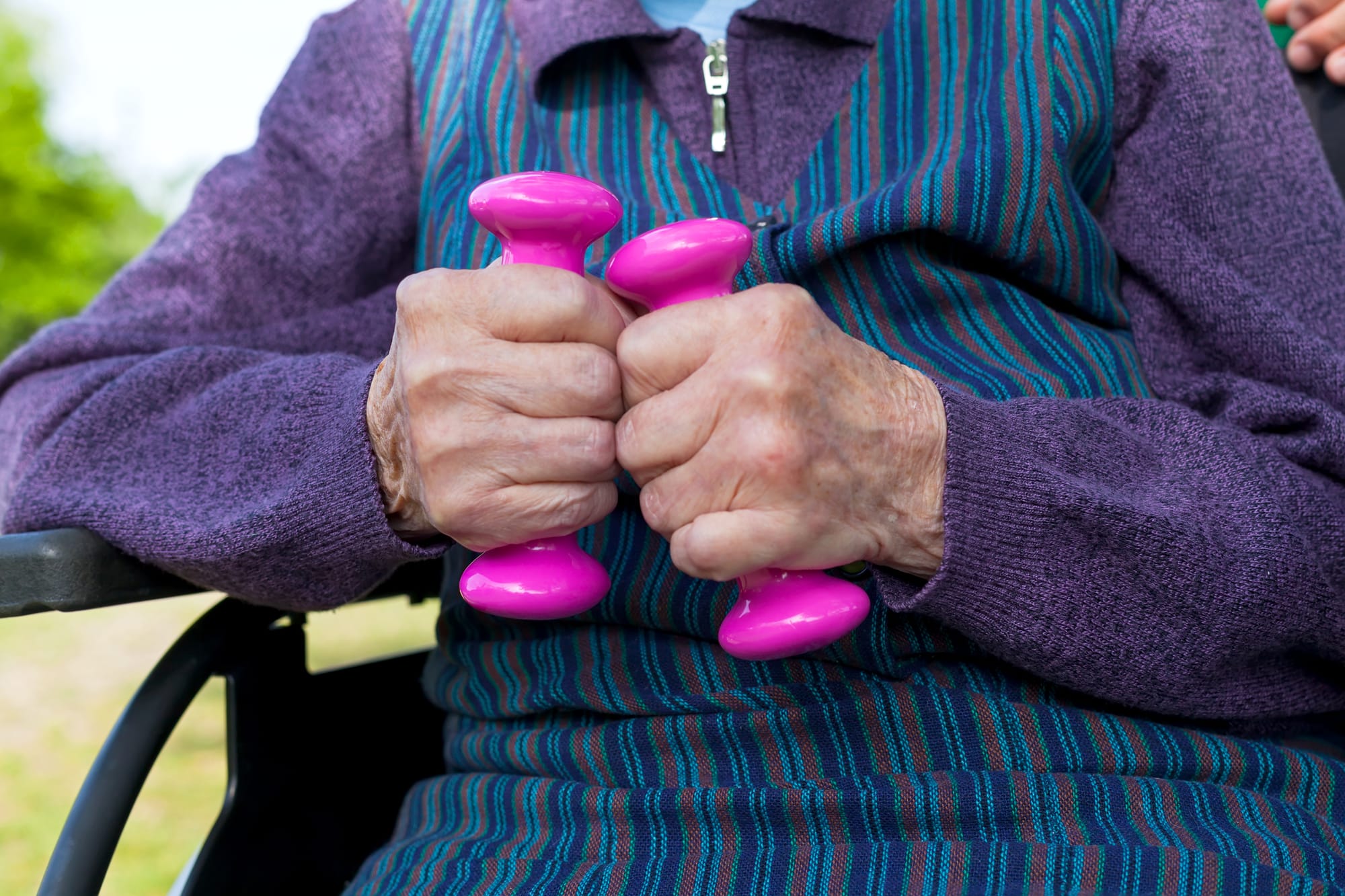The Role of Exercise in Supporting People with Dementia

Dementia is one of the most challenging conditions faced by residents in care homes. It affects memory, thinking, and behaviour, often leading to reduced independence and quality of life.
While there is currently no cure, research has shown that regular, structured exercise can play a powerful role in managing symptoms, slowing progression, and improving overall wellbeing.

How Exercise Supports People with Dementia
1. Boosts Brain Health
Physical activity increases blood flow to the brain, supporting the delivery of oxygen and nutrients that help protect brain cells. This can improve concentration, slow cognitive decline, and even encourage the growth of new connections within the brain.
2. Reduces Anxiety and Agitation
Many people with dementia experience restlessness, agitation, or confusion. Gentle movement—such as walking, stretching, or chair-based exercises—has a calming effect, helping to reduce stress and improve mood through the release of endorphins.
3. Improves Sleep Quality
Sleep disturbances are common in dementia, but regular physical activity can help regulate sleep patterns, leading to deeper, more restful sleep and reduced night-time wandering.
4. Supports Physical Strength and Balance
Dementia often leads to reduced mobility, which can increase the risk of falls. Exercise helps maintain muscle strength, joint flexibility, and balance—giving residents more confidence and reducing the likelihood of injuries.
5. Encourages Social Connection
Group exercise sessions can provide routine, familiarity, and companionship. This sense of belonging is especially valuable for people with dementia, helping to reduce feelings of isolation and build positive emotional experiences.
Types of Exercise for Dementia Care
- Chair-based exercise – safe, inclusive movements to support strength and flexibility.
- Walking programmes – gentle walking indoors or outdoors to improve cardiovascular health.
- Music and movement – combining familiar songs with light exercise to stimulate memory and engagement.
- Balance and coordination training – simple movements to reduce fall risk.
- Breathing and relaxation exercises – promoting calmness and focus.
A Holistic Approach to Dementia Care
Incorporating exercise into dementia care is not about pushing physical limits—it is about creating structured, enjoyable activities that improve quality of life. When combined with good nutrition, emotional support, and personalised care, exercise becomes a powerful tool in supporting residents with dementia to live with dignity and joy.
Exercise is more than physical movement for people with dementia—it is a lifeline to better health, improved mood, and a stronger sense of self. By prioritising safe, adapted exercise programmes, care homes can make a lasting difference in the lives of their residents living with dementia.


